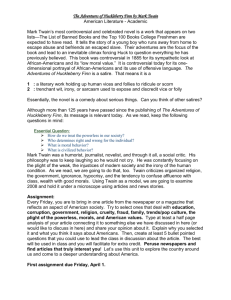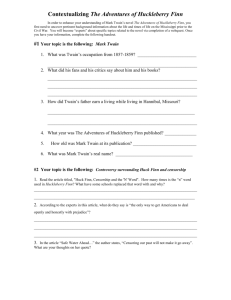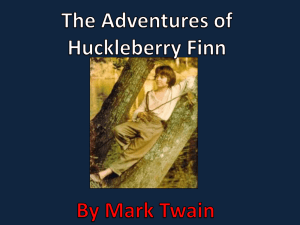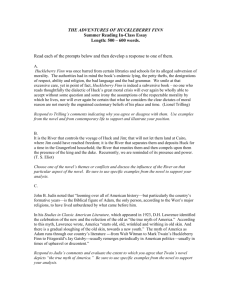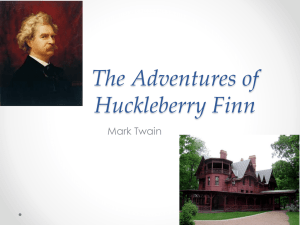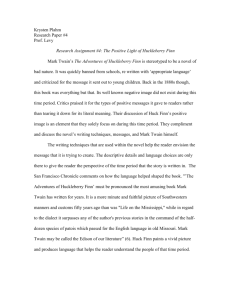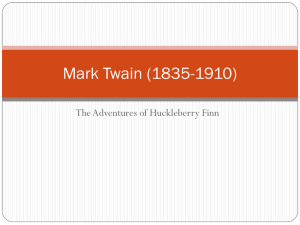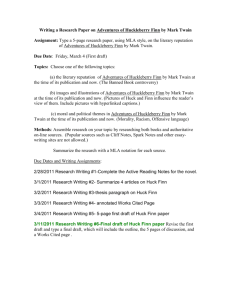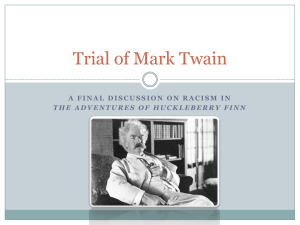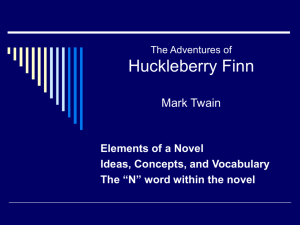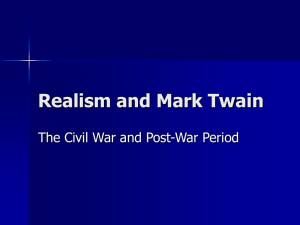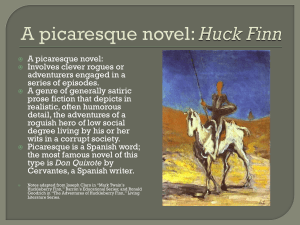Realism and Adventures of Huckleberry Finn Notes
advertisement
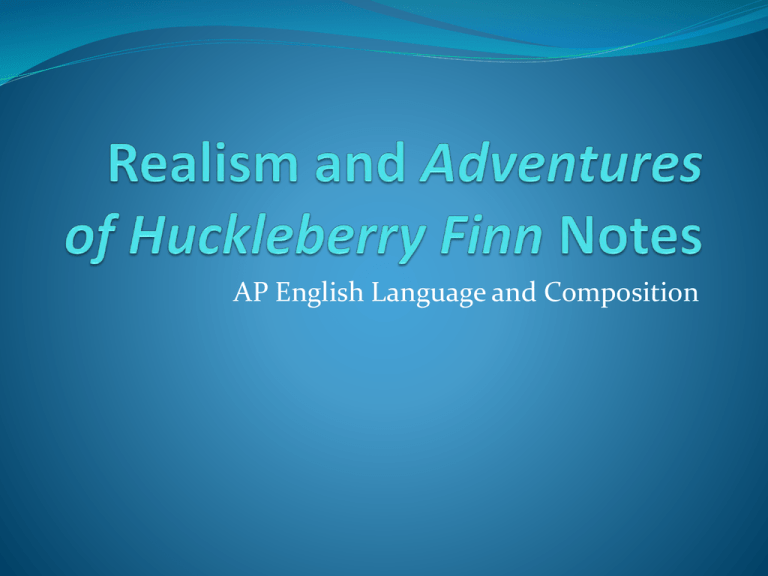
AP English Language and Composition Realism: a slice of life Realists see life as it really is and how life truly exists. Realistic literature is an honest and objective representation of life. Writing in this genre is simple and contains prose appropriate to the time period and setting. Realists concentrate on the typical and average. Realism is a response to Romanticism (Romantic writers focused on the imagination; Realists focused on daily life). America was changing from a rural agrarian nation to one with growing urban centers. Realism emerged because of the Nation’s disillusionment following the Civil War. After the Civil War ended, writers focus on local customs and local cultures throughout the United States. Focus on ordinary people and events; little plot or symmetry Dialect – a variation of language spoken within a particular region or class. Local Color – The portrayal of a region’s distinctive ways of talking and behaving Mood – the emotional quality of literary work created by language, setting, and tone Satire - literary composition, in verse or prose, in which human folly and vice are held up to scorn, sarcasm, or ridicule. About the author and novel… Born Samuel Langhorne Clemens on November 30, 1835 in Florida, Missouri. Pen name “Mark Twain” was inspired by a riverboat term “mark twain” which signals depth and the point where the boat could drift on its own current Before being a writer he was a riverboat pilot, a printer, and a hopeful gold miner Married Olivia Langdon in 1870. Most famous novel is Adventures of Huckleberry Finn. Some of his other works include: The Adventures of Tom Sawyer, Life on the Mississippi, and Pudd’nhead Wilson. Twain and Huck Many of Twain’s books contain powerful social themes challenging traditional Southern ways of thinking and controversial language. Some of Twain’s books have been banned due to controversy Twain published his first novel, The Adventures of Tom Sawyer, in 1876. Mark Twain was 75 years old when he died on April 21, 1910. The essence of Huck Finn Adventures of Huckleberry Finn was published in January of 1885 and was a follow-up story to Tom Sawyer. The book naturally divides itself into three parts (Huck in civilization in Missouri, Huck and Jim on the river, and Huck’s return to civilization on the farm.) The Concord Library Committee banned Adventures of Huckleberry Finn in March of 1885 because of its abolitionist tone. The book being banned may have been the best publicity Twain could have asked for because it focused society’s attention on the book. Today the book is often considered a controversial or banned book because of the use of the “N-word” (which appears in the book approximately 213 times). HF is considered an American classic and is one of the most widely read American novels of all time. Ernest Hemingway once said, “All modern literature comes from one book by Mark Twain called Huckleberry Finn.” The novel is a series of episodes rather than one continuous story. The novel is a framework story – a narrative that contains another narrative. After writing the first 16 chapters, Twain stopped working on HF and even threatened to burn the manuscript. However, over the next 7 years he often revisited, edited, and added to the novel. There are shifts in tone in the novel from lighthearted to serious to even humorous. This shift in tone is in part what appeals to both young and old readers. The Mississippi River At estimated length the river is about 2,320 miles, but it is hard to measure exactly because the river channel is constantly changing. At its fastest moving part, the river has a speed surface of about 1.2 miles per hour. The narrowest stretch of the river is about 20 feet, but in places it can span as wide as 4 miles. In the shallowest place it is 3 feet deep, but at its deepest place it is 200 feet in depth. In terms of tonnage, the largest port in the world is located on the Mississippi River (over 250 million tons of goods shipped in an out of the port at New Orleans in one year). Major Themes… Slavery and racism Contrast between civilization and the wild (nature) Contrast between social norms and honest morality (search for self) Friendship
